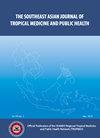肛裂和痔疮切除术中脊髓或局部麻醉的应用:比较文献综述
IF 0.1
4区 医学
Q4 INFECTIOUS DISEASES
Southeast Asian Journal of Tropical Medicine and Public Health
Pub Date : 2023-08-18
DOI:10.9734/ajmah/2023/v21i10892
引用次数: 0
摘要
本综述的目的是考虑脊髓和局部麻醉的风险、益处和预期益处。比较每种手术技术使用的最安全和最合适的麻醉剂也有帮助。人体的一个极其敏感的区域是肛门直肠区域。虽然它通常比胃肠道系统的其余部分短,尺寸在2.5到4厘米之间,但它在物理和功能上极其复杂。肛管的唯一作用是连接直肠和消化系统。它对于维持大便的控制和保护身体免受外来细菌的侵害是至关重要的,这些细菌可能利用直肠作为进入肛管的入口。肛肠肛裂是一种典型的良性疾病。这是一种非常痛苦的疾病,在某些极端情况下,也可能导致直肠出血。通常是一种溃疡,它纵向发展于肛门上皮衬里,紧靠齿状线远端。裂隙的特征是边缘硬化,可见肛门内括约肌纤维,靠近裂隙远端有息肉或皮赘。痔疮是位于肛门直肠区域的小簇动静脉、纤维血管和粘膜下窦。痔疮与患者排便后不久的新直肠出血有关,这是一种非常独特的模式。在药物治疗无效的情况下,建议对这两种疾病进行手术治疗。任何手术计划,选择麻醉剂的问题出现。虽然建议局部麻醉和脊髓麻醉,但研究和专家意见表明,局部麻醉明显优于脊髓麻醉。对于许多外科医生来说,这是一个受欢迎的选择,因为它在病人的健康方面是成功的,而且也是经济的。本文章由计算机程序翻译,如有差异,请以英文原文为准。
The Administration of Spinal or Local Anesthesia in Anal Fissure and Hemorrhoidectomy: A Comparative Literature Review
The purpose of this review is to consider the risks, benefits, and prospective benefits of spinal and local anesthetic. Comparing the safest and most suitable anesthetic to utilize with each surgical technique also helps. An extremely sensitive area of the human body is the anorectal region. Although it is normally shorter than the remainder of the gastrointestinal system, measuring between 2.5 and 4 cm, it is extremely complex physically and functionally. The anal canal's only purpose is to serve as a link between the rectum and the digestive system. It is crucial for maintaining fecal continence and safeguards the body against foreign bacteria that may utilize the rectum as a possible entrance point into the anal canal. Anorectal anal fissures are a typical, benign disorder. It is an extremely painful disease that, in certain extreme situations, may also cause per rectal hemorrhage. Usually an ulcer, it develops longitudinally in the anus's epithelial lining immediately distal to the dentate line. A fissure-in-ano is characterized by indurated margins, visible internal anal sphincter fibers, and a polyp or skin tag close to the fissure's distal end. Hemorrhoids are little clusters of arteriovenous, fibrovascular, and submucosal sinusoids that are located in the anorectal area. Hemorrhoids are shown to be related with new per rectal bleeding in the patients shortly after they defecate, which is a highly distinctive pattern. In circumstances where medical therapy is ineffective, surgery has been suggested for both of these disorders. Any time surgery is scheduled, the question of selecting anesthetic arises. Although both local and spinal anesthesia are advised, studies and expert views have shown that local anesthetic has a clear advantage over spinal anesthesia. It is a popular option for many surgeons since it is successful in terms of the patient's health and is also economical.
求助全文
通过发布文献求助,成功后即可免费获取论文全文。
去求助
来源期刊

Southeast Asian Journal of Tropical Medicine and Public Health
PUBLIC, ENVIRONMENTAL & OCCUPATIONAL HEALTH-INFECTIOUS DISEASES
CiteScore
0.40
自引率
0.00%
发文量
0
审稿时长
3-8 weeks
期刊介绍:
The SEAMEO* Regional Tropical Medicine and Public Health Project was established in 1967 to help improve the health and standard of living of the peoples of Southeast Asia by pooling manpower resources of the participating SEAMEO member countries in a cooperative endeavor to develop and upgrade the research and training capabilities of the existing facilities in these countries. By promoting effective regional cooperation among the participating national centers, it is hoped to minimize waste in duplication of programs and activities. In 1992 the Project was renamed the SEAMEO Regional Tropical Medicine and Public Health Network.
 求助内容:
求助内容: 应助结果提醒方式:
应助结果提醒方式:


